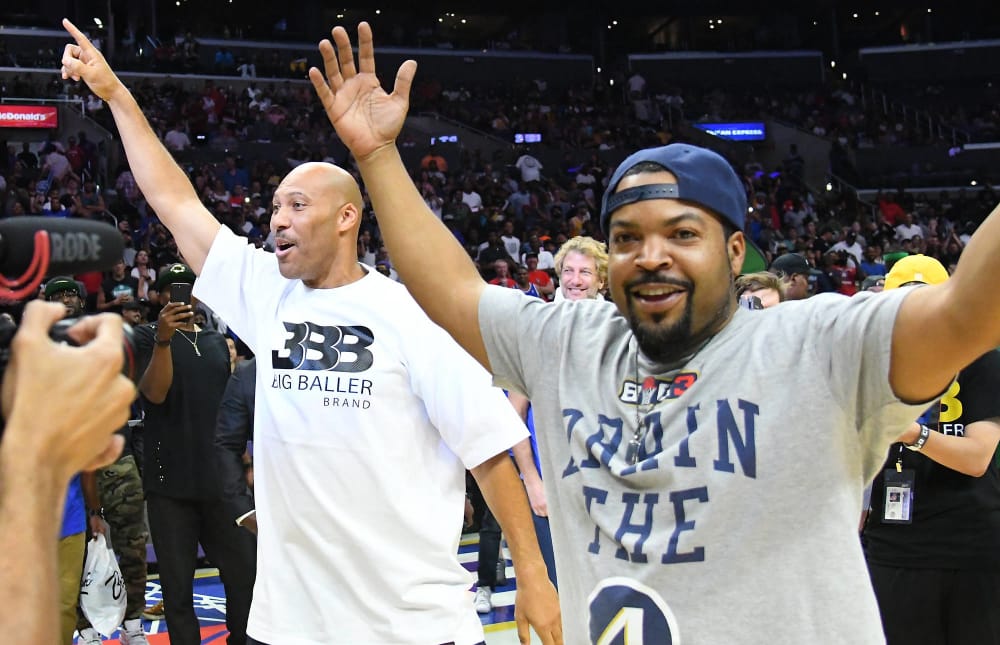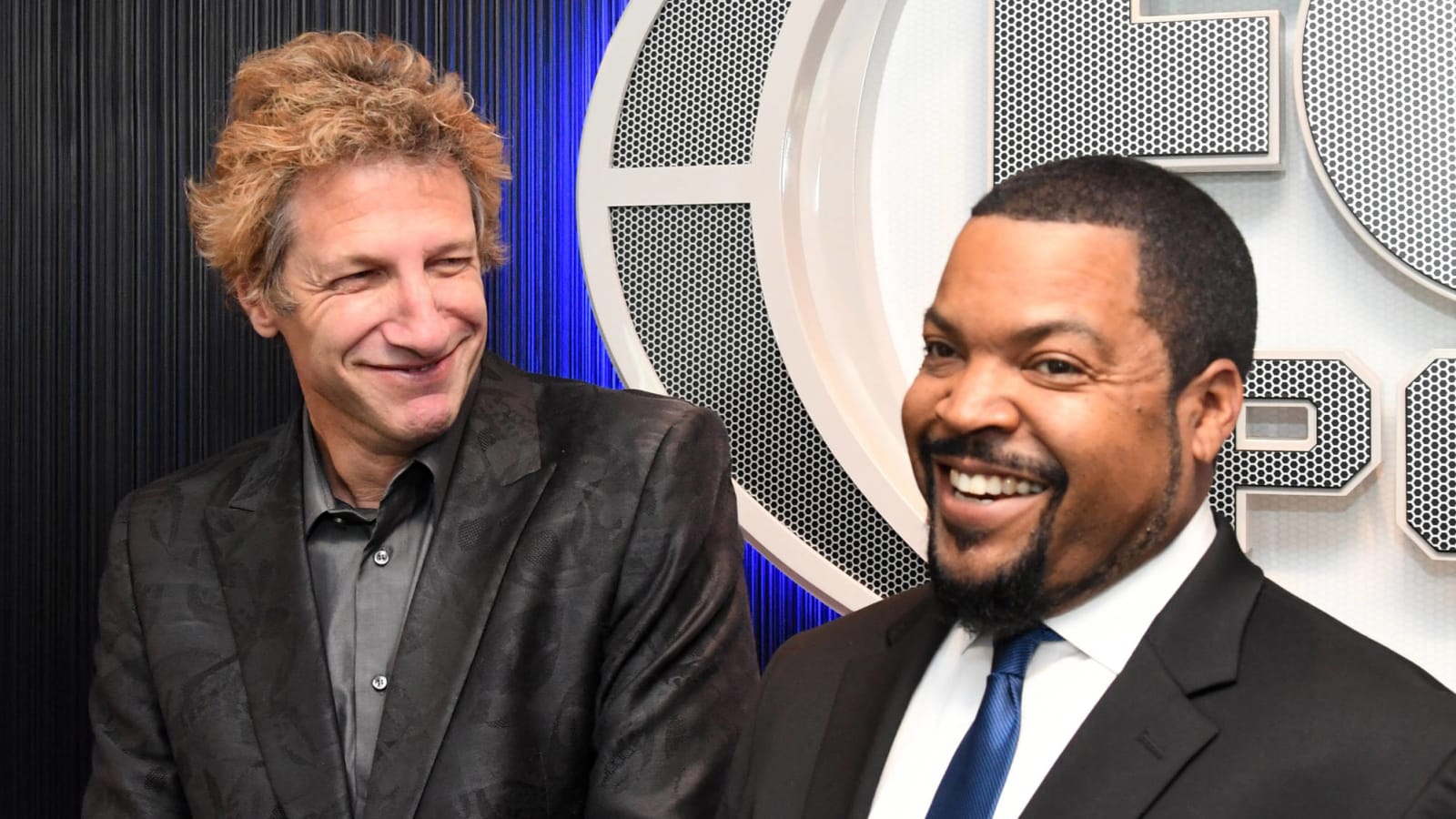
Jeff Kwatinetz is loving Year 2 of the BIG3
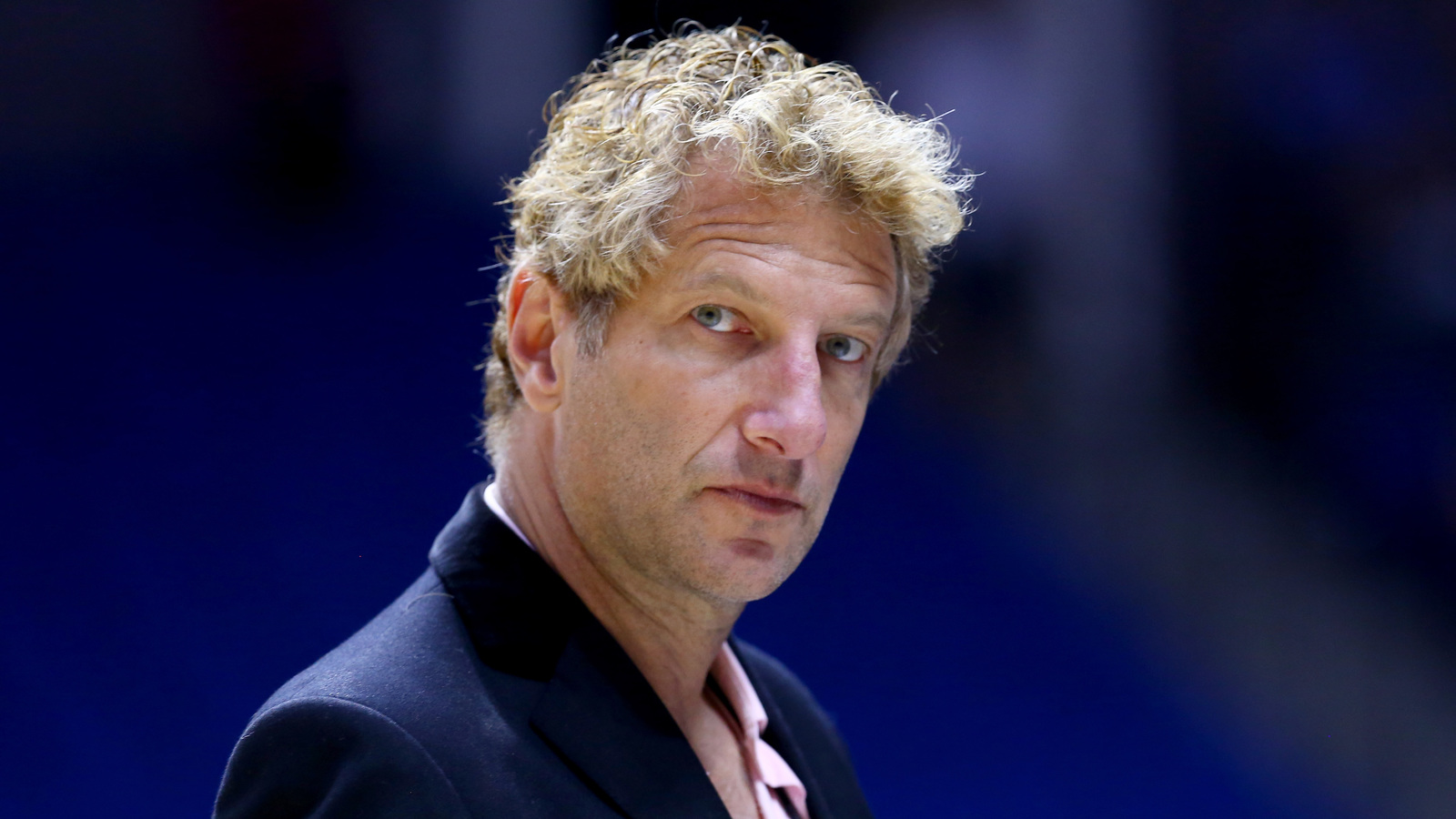
Jeff Kwatinetz is a busy man. In the midst of preparing for Week 3 of his BIG3 league, now in its second season, he spent a few hours speaking with lawyers before hopping on the phone to speak with Yardbarker about a project that he’s dedicated to bringing to the world. The league saw more than 1 million viewers in its second week this season.
Metta World Peace and Baron Davis are among the new faces you’ll see on Friday nights, but make no mistake, this league is Kwatinetz’s baby. If you spend any time speaking with him, you’ll feel how much this league means to him. For Kwatinetz, it’s not just about the basketball, but it’s about the work that surrounds the league.
This season, Jerome Williams has been tasked with building the Young3, Nancy Lieberman is coaching the Power and all of the games are live. Kwatinetz has his league giving back to the communities that welcome them for a weekend, and he doesn’t think twice about how effortlessly progressive his league already is and that the BIG3 has already made the natural next step for a budding pro sports league.
For someone so incredibly busy, he was gracious with the time he gave to Yardbarker. He spoke about where the league is heading, the kids, entertainment and Colin Kaepernick. Here’s Kwatinetz on the state of the BIG3.
Yardbarker: Last year, almost all of the games were on a tape delay. What were some of the challenges moving from the product that you had last year to moving onto a live product this year? How did that come about?
Jeff Kwatinetz: Well, when we first did the deal with FOX Sports it was always supposed to be live. They came to us with the idea of putting it on delay based on historical examples of new leagues. The most well-known example being the XFL running into some technical issues the first couple broadcasts. They had all the money and all the backing in the world, and they ran into issues. The last thing we wanted to do was run into issues. So when Cube and I first met with FOX, we were perplexed because we said, "It's sports, how can it possibly not be live?"
We really thought about it. We realized that it was a smart idea from the FOX team because it protected us. The BIG3 was something that was very new, and new format and the tape delay definitely saved the league. Our opening night last year was in New York. It was at Barclays Center with 15,000 people, and they loved every minute of it — but there were a lot of minutes of it. The night ended up going five and a half hours.
Had it been live we would have been the laughingstock of the sports business because you know we would have been somewhere in the middle of the third of four games when we had to go off the air. And that would not be good.
Now over the course of the season, we were able to come up with all kinds of innovative things from miking players and coaches giving greater access to the kinds of features that we believed the younger audience or sports audience really wanted and were able to learn how to do that, how to shoot 3-on-3 the best possible way.
Our Finals last year, which were on the FOX Broadcast Network, were live. So by the time we were at Week 10 and had our Finals, we, as an organization collectively, with our production partners at Fox, were able to pull it off without a hitch. People commented on how it looked like we've been doing this for 30 years.
So coming back this year it actually wasn't that hard because we had worked ourselves up for that and had done those two games live at the end of last season. From that standpoint, actually, we've had a really good two weeks now. It's been great we've been able to retain a lot of the features that we were able to do last year.
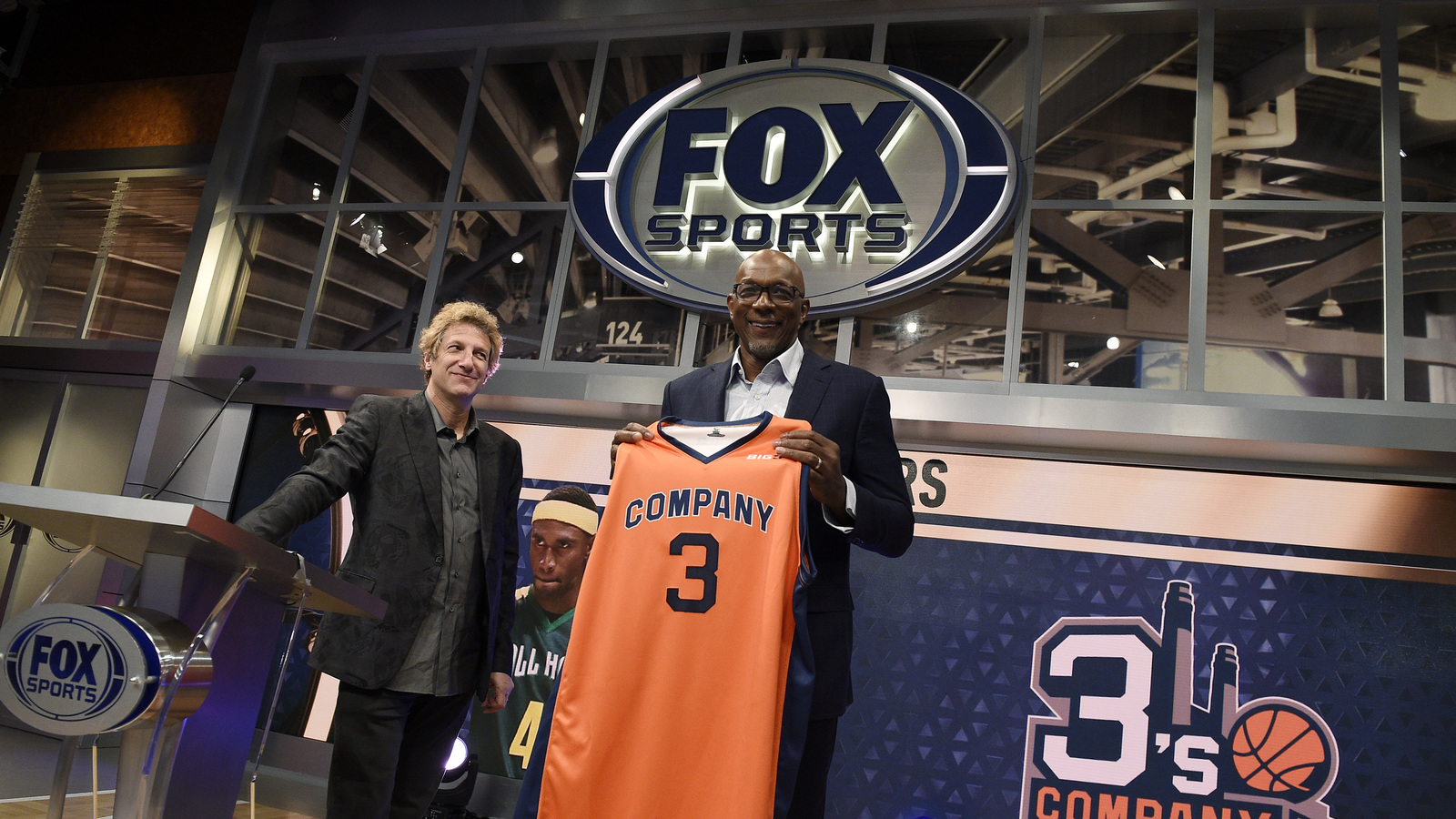
YB: Was there anything else you wanted to really focus on building on the league in Year 2?
JK: This year, a part of our vision was finding ways to expand the audience. We're always trying to make it a more exciting experience both on television and live in person. We knew that this was a challenge that we would be happy to take on.
At the end of the day, we knew we needed the basketball to be amazing and competitive — and it has been. And we obviously want to reach as many people as we can. And so far, so good. We're still in the second year. We’re still learning a lot.
In some ways, having a live event on Sunday evenings to be aired on Monday nights like last season was a bit easier because we didn’t have to worry about getting everything right in real time. In some ways, it was harder because it meant that Cube and I would get on a plane immediately after the final game to head to the Fox Studios, staying up all night and working on edits. Our work didn’t end until the games aired on Monday. So in a lot of those 48- to 72-hour runs, we were up the entire time.
Now, it's good that when the final basket goes in for game four that we can actually be basically done and breathe for a few minutes. The games being live also makes things better for the fans because all of the buildup to the games in the days that we’re in these cities doesn’t have that dead period with no action.
YB: I love what you guys have been doing while you’re spending time in each city this year. The new youth initiative seems like a natural fit for Jerome Williams.
JK: It was always our intention that when we came to a city, we wanted to leave it better than we found it and to get involved with youth groups. This year, Adidas came on as a sponsor, which really allowed us to do things like refurbishing courts in inner-city areas that need some help.
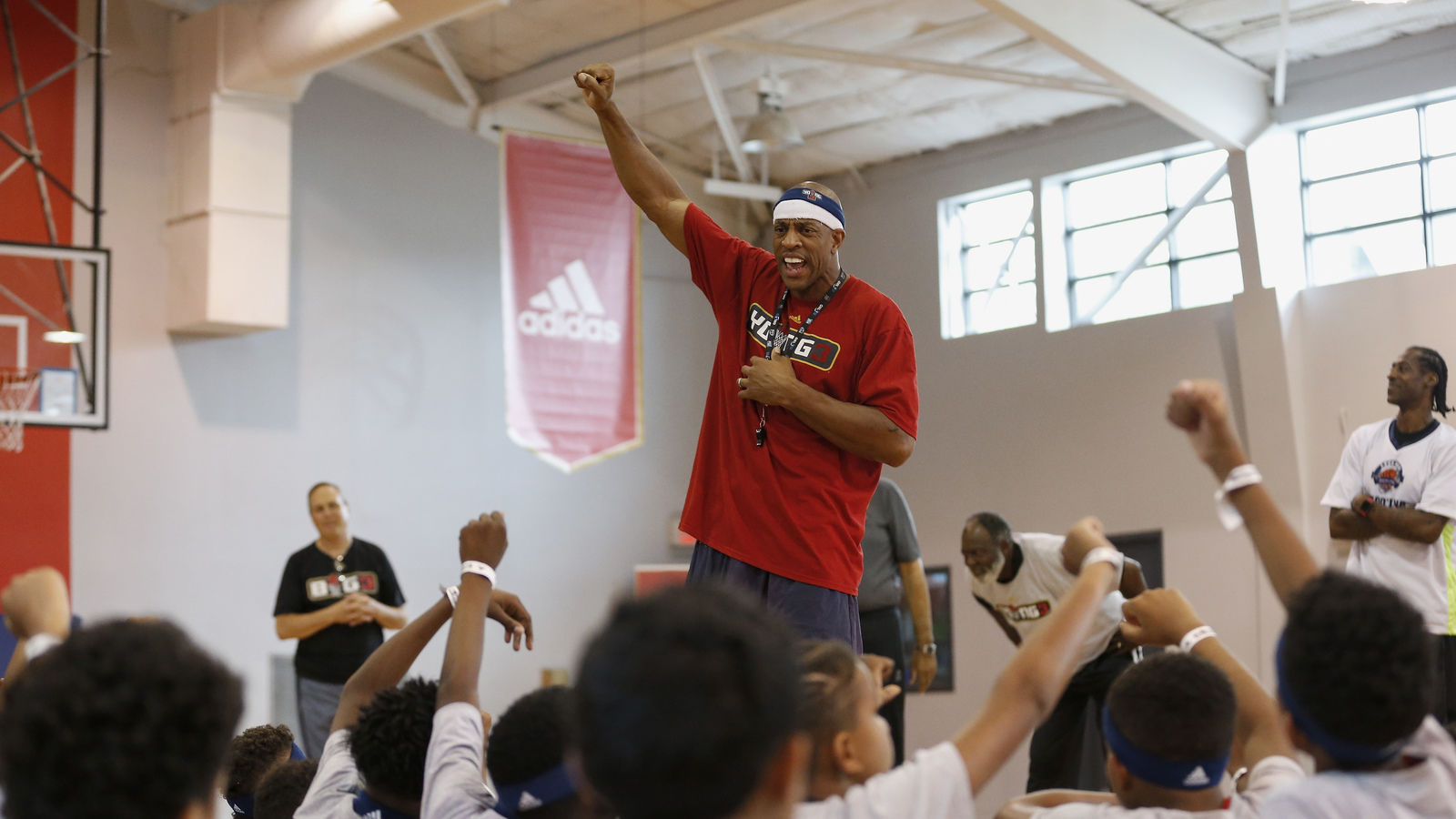
We've been working with the Boys & Girls Club on Thursdays. We put together the Young3, which is for kids 7 to 14. It's run by Jerome Williams, who played last year and has a lot of experience doing these types of events. It's been really heartwarming to do something for these kids.
Cube likes to say it's kind of like our Play60 for the BIG3. You know, we’re getting kids out, not just watching TV, staying on social media and playing video games, but actually getting out and socializing with each other. They’re getting to meet NBA greats and positive role models, and then they get to go to the games. A lot of these kids have never been able to afford to go to basketball games before and never had access to heroes — and our players are heroes to these kids. This is something that’s always been important to Cube and I throughout our careers, and it’s something that’s always been important to our players and coaches. It’s been fulfilling.
It’s thrilling to touch a community and to help them. In Houston, we got involved with the mayor’s office. The mayor came to the event. We got involved with a lot of the city's priorities in terms of areas and community groups that needed some support. This coming Friday, we’re getting involved with a lot of youth groups in Oakland. Our audience, surprisingly, is a very young — it’s a generation younger than the NBA audience. The younger kids play 3-on-3, and you know by reaching out to a lot of these youth groups, I think that a lot of these kids get inspired and just get to see some positivity and have some fun. So that's been a big priority this year as well.
YB: You mentioned the Adidas sponsorship. They’ve been extremely pro-culture in recent years. How has their way of thinking aligned with what you’re doing with the league and, more importantly, with the kids?
JK: One of the great things about Adidas is that they care about youth. And I think the reason why we bonded with them so early in the league's evolution was because we did have a lot of the same desires in terms of what we wanted to do in these communities.
YB: While in these communities, it’s obviously more than just the work that you’re doing with the kids, but you turn the BIG3 into a huge, weekend-long event. You guys put a lot of media around what the BIG3 is doing in the city leading up to the games, and in that sense, it’s almost like you guys are as much a mini-multimedia company as you are a basketball league. Can you tell me about the strategy that goes into creating so much content and why that’s so important to your growth?
JK: I agree. We want our fans to be able to engage with us so we try to get a lot of content out there. The players and coaches are aligned with the league, because we're all in it together financially, and with the players the coaches empowered, they’re much more involved.
They interact with pretty much everyone. We thought they gave us a lot more access to things that fans want to know about and want to see. Because of this, we’re able to put a lot of things online and make them available, which I think is the right direction for us.
I mean, Ice Cube is talent. He’s an actor, a director and a writer. And my background for many years, I built the biggest talent management company in history with The Firm, and the overriding thing that defined The Firm was that it was very, very pro-talent. We were very serious in our mission to fight for our talent against the interests of corporations that they were contracted with. So this is the kind of DNA that Ice Cube and I have brought to the league.
For us, it’s always been about how we get the best basketball and get the most out of the fans because that's what drives the business, which is really all about media, which means ratings and sponsors.
So there’s this real family dynamic. There are players who have known each other for 10 years, and with some of the coaches, it’s even longer than that. Everybody's in the same city at the same time. Of course, they compete against each other, but before and after they’re all together.
YB: One of the things that you mentioned you know your audience is a generation younger than the NBA, which is traditionally younger than the four major sports leagues in America. What is it you’re doing that you think is bringing such a young audience both online and in arena?
JK: I think it’s several things. First of all, our audience is still very diverse. It’s a young and old, male and female, racially and ethnically mixed audience. So it's not like our audience is just this one audience or just catering to an audience.
I'm 53 years old. I grew up with these guys. I mean, getting to work with a Clyde Drexler is like a dream come true. So we definitely have something for those in their 50s and 60s. But what I think is resonating with a younger audience that it's more reflective of the way that they play the sport.
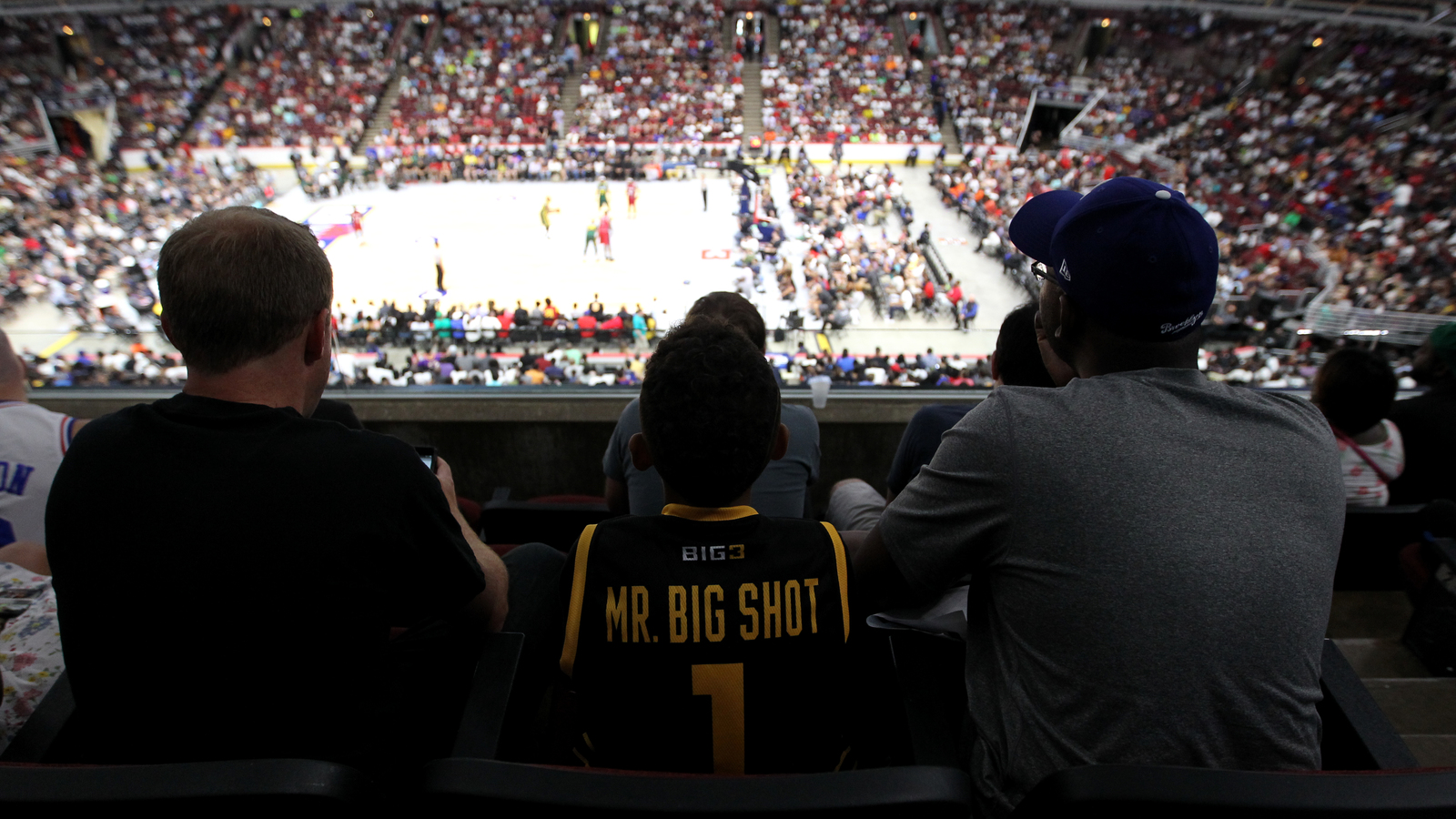
Now people get tired of hearing me say this, but it’s the truth: 3-on-3 basketball is the most played sport in the world. It is more played than soccer or baseball or rugby or cricket. Basketball is very accessible. It's what kids play. It's also a very fast, quick and physical game because you go instantly from offense to defense, and... there's no hiding in the corner. You have to play defense.
The teams have learned how to exploit someone who is weak on defense. So it is very physically demanding, and it also ties into what our players are great at, which is they have very high basketball IQ from playing in the NBA. They may not be able to run up and down the court for 82 games with back-to-backs and travel on the same level that 22-year-olds in the NBA can.
I have no doubt — and I’ve said this before — our best 15 players would blow away the best NBA players under 25. It wouldn't even be a match. Our guys are just smarter about the sport of basketball because they’ve been doing it longer. It's not a surprise. Experience does count. While the under 25 guys have the advantage in a run up and down the court, when you take that away and you make it more about physicality and the skills that you learn — shooting, passing, understanding the intricacies and strategies of basketball — our guys are just smarter.
YB: Obviously, Drexler's the new commissioner, but him leaving his coaching position opened the door for Nancy Lieberman to come in. I just wanted to ask a little bit about how that came about. How important was it for you guys to kind of be at the forefront of putting women in positions of power and in positions to be successful in such a new and budding professional sports league?
JK: I mean, we live in a diverse society, so if you're not biased then you'll end up with something that reflects our society.
You know, when we founded the league, our CEO and chairman was and still is Amy Trask, who was CEO of the Oakland Raiders for years and years. Ice Cube and I each had a 20+ year relationship with her. For us, she’s just not a woman. She won't let me say she's the chairperson of the board, she’s the chairman of the board — she has that title. But she's never looked at herself as a woman, she thinks herself as a person. She was the best for that job. We literally begged her because we knew we needed her and wouldn’t be successful without her.
The Nancy situation wasn’t like, "Oh, let’s be leaders and go get a woman" at all. Nancy had come to a game last year. Rick Barry has a relationship with her and brought her to coach with him one game. She saw what we were doing and was very into it. She's an incredible coach, and you know, she's super competitive. She's been that way her whole life. And frankly, it wasn't hard. The decision wasn't made because she’s a woman, it was made because she’d be a great coach.
Her team is coached incredibly well. They’re 2-0 [2-1 following this past Friday’s action]. What I'm proud of is less that we offered her the job and that she took it, but that when we went to the players and the team and said we want to bring Nancy Lieberman in, their answer was, "Yes, Nancy is great."
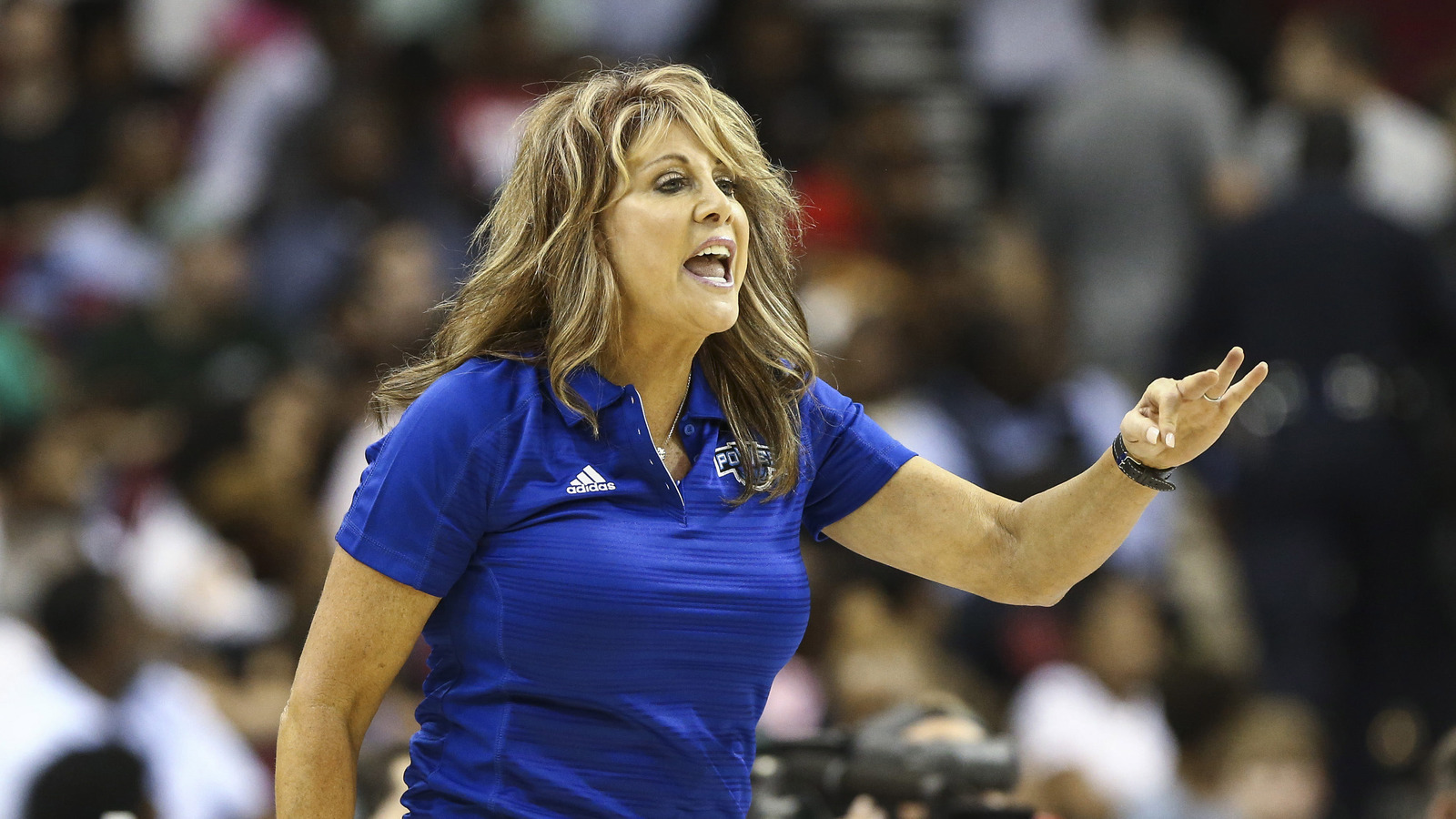
It sounds like bullshit, but I'm telling you is actually true. We knew that she was bringing energy to the league and a level of competitiveness that we wanted. When we filled the other coaching opening with Michael Cooper, here’s a guy who's won championships in three other leagues. He’s a guy who wanted to do it, was competitive and had the skill.
So Nancy Lieberman’s team has benefited because she's a great coach, not because she's a woman. And we're benefiting with Amy in our circle for the same reasons. I guess that we're just not beholden to the old ways of looking at things. It's a reflection of just the general attitude more than, "Let’s be first, that’ll be a great storyline."
In some ways, it's sad that it's a storyline — why should it be a big deal that she’s a woman and a coach? But the fact that it is a big deal, we are happy to be a first because, hopefully, that will lead to other opportunities for other people. I mean certainly in the NBA there are a few female coaches now in spots. You know, not head coaches yet, but it's clear that they are on the way to that.
YB: I saw that you were working with Mark Geragos, trying to do some things to elicit positive change in certain communities — some of which was on the Colin Kaepernick case.
JK: Yeah, I mean look, I don't want to overstate it. I wish I had the time to do more on it. I've always been very liberal and supported civil rights causes. I’ve been a sounding board for Mark and Ben, his partner who is a very close friend. I've known Mark — we get a TV show based on him for ABC and he was one of the first investors in BIG3. When he started working with Kaepernick, I was just so inspired by it. It's so terrible what they’re doing to him. I was just inspired, wanting to do anything I can do to put my law degree to work.
But again, I don’t want to overstate. Mark and Ben are running the show, but I have, and continue to, help them out with Kaepernick and Eric Reid, who is another example of being treated awfully.
The best thing about helping Mark with Kaepernick is getting closer to [Kaepernick] and realizing that he is authentic and he loves football. He wants to play football, but he's acting on his beliefs. He is truly a hero, and history is going to look at him that way. It’s crazy that the league was calling him a distraction, and now he’s becoming an attraction because so many people are behind them.
YB: One last thing I want to talk to you about was during a trip to China, Cube said you were going to play exhibition games after the season with some players and coaches out there. I was just wondering, with the Olympics coming up in 2020, how important was it for you guys to start expanding beyond the U.S. borders to reach more people worldwide?
JK: Well, last year in our first season we were broadcast in 32 countries. This year I think we're in 50. Already from the get-go, we were exposed around the world.
You know a lot of interest came to us because of the way that we did the sport, and they like the way that we organized the games. They were excited by it. We would like to get to a lot of other parts of the world.
We started our league before the Olympics made their announcement. I think that we helped push a couple countries over the line into voting for 3-on-3 in the Olympics. But I think the Olympics included it for the same reasons that we saw that we could be successful. The Olympics are always trying to make sure that they're staying young, bringing in new viewers, being relevant to today.
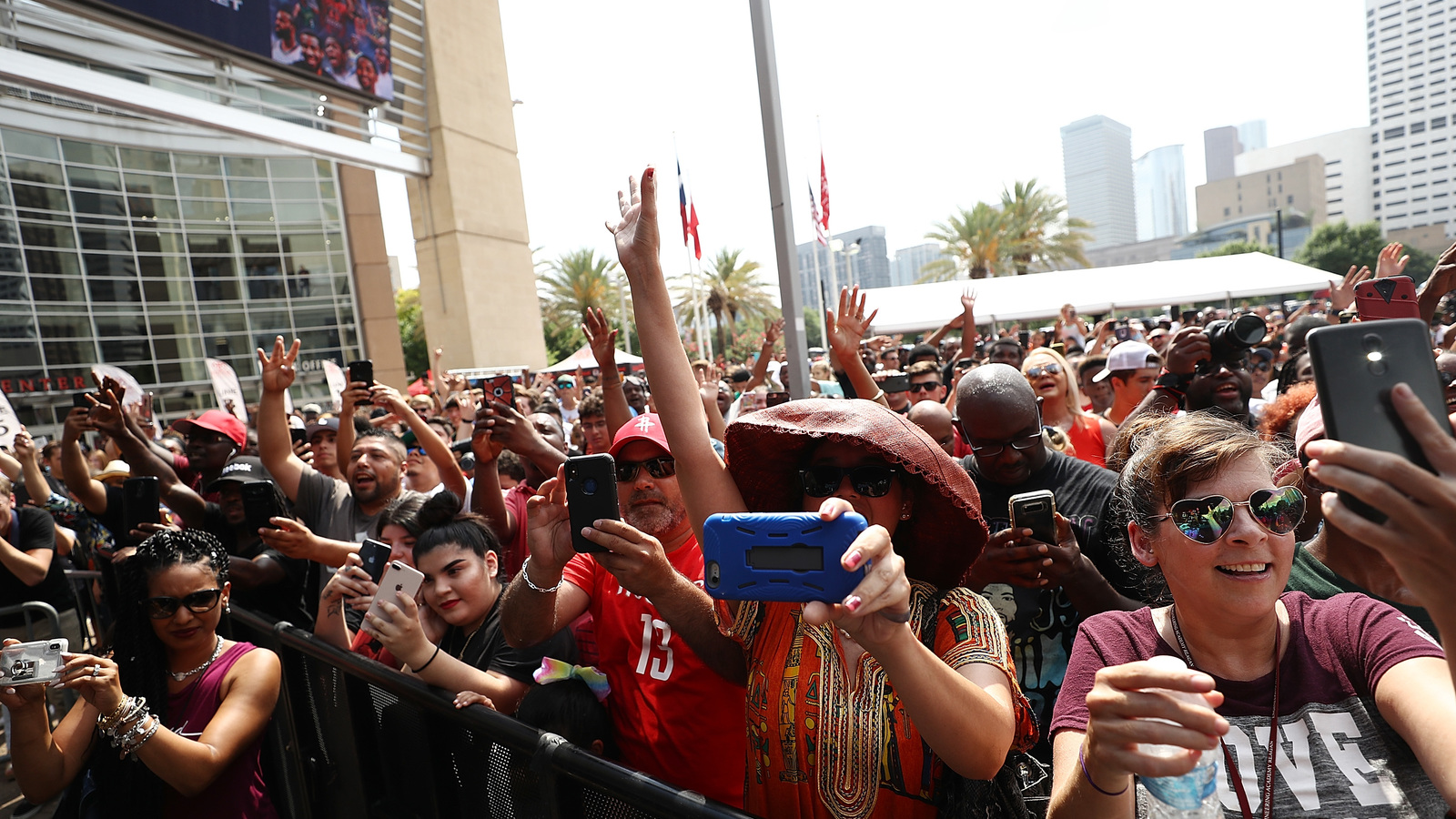
I think that they came to a revelation that this is the most played sport in the world. Why don't we have it? So we're going to have curling, let's have 3-on-3 basketball. Nothing against curling, but it ain't the most played sport in the world.
But I think that day we just saw something that was happening maybe a little bit before some other people did. We didn't invent the game, we reinvented the rules and we organized a league differently around the game, but the game is being played — so why not bring it around the world?
There's a lot of interest, it gives a lot of opportunities, more opportunities for our current players. It allows us to get more people involved and, ultimately, more work in entertainment. It’s something that Cube and I have always agreed on. You have a lot of turmoil around the world, disagreements, wars, fights, but music, film, television and sports transcend geographic borders as a way to unite people. If we could be a part of that, I think it would be great.
--
Check out the BIG3 online at their website www.big3.com and watch the games on Friday evenings on FOX and/or FS1. Check your local listings.
More must-reads:
- The best buzzer-beaters in basketball history
- Mahmoud Abdul-Rauf steals the show in the town where basketball never sleeps
- The best and worst of the BIG3 inaugural season
Breaking News
Customize Your Newsletter
 +
+
Get the latest news and rumors, customized to your favorite sports and teams. Emailed daily. Always free!
